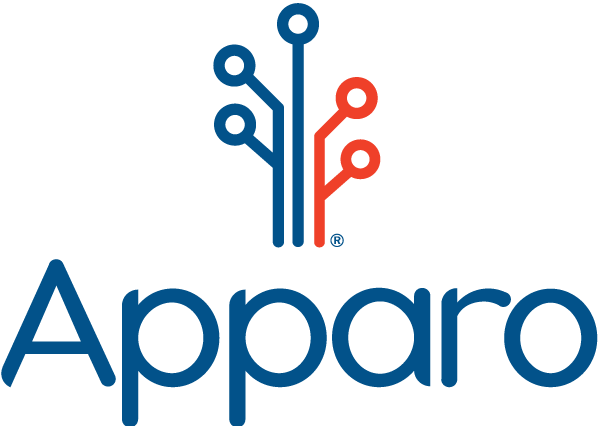Volunteering technology and process skills amplifies nonprofit impact in three ways.
Skilled volunteering marries professional pursuits and philanthropy. It involves employees using their professional knowledge and expertise on a pro bono basis to serve nonprofit organizations. This form of volunteering is a commitment made by many companies looking to leverage their skill sets to create social impact and has proven to be a highly sought-after need especially with smaller nonprofits lacking technological and business process essentials.
Many nonprofits hesitate for three reasons:
- They do not know where to find the specific skills needed at the time they need them
- They are uncertain about how they will have the capacity to engage volunteers in their processes on top of the everyday work they must accomplish
- They have concern that the “experts” might not listen to the uniqueness of their needs
As a pro bono intermediary, Apparo addresses these areas of concern. For over 10 years, Apparo has facilitated partnerships between corporate skilled volunteers and nonprofits to aid them in collaboratively defining goals and desired outcomes, evaluate the skills of the nonprofit staff to highlight the skills gap and create training that uniquely fits your organization. Apparo sources the right skilled volunteers, facilitates the entire engagement, circles back with success metrics and provides marketing tools for both for-profit and nonprofit to share the impact of their partnership.
Kim Lanphear, is a passionate industry leader who helps transform nonprofits through technology by way of North Carolina-based nonprofit, Apparo. Here, she shares valuable insights by providing three reasons why skilled volunteering is so important to amplifying nonprofit impact, specifically when considering technology and business process needs.
Valuable expertise
The increased use of technology in the non-profit sector has led many organizations to take their operations online. This elevated technology use has resulted in even more connection between nonprofits, technology, and infrastructure best practices needs. Skilled volunteers provide nonprofits with significant and immediate capacity-building results. The advice, resources, education, and training that skilled volunteers offer to nonprofits help improve processes and procedures that allow their staff to be better equipped to take on unique challenges.
When managed well with a partner who understands your unique nonprofit business model, huge strides toward efficiencies and faster internal processes can be achieved. These skills that are not normally available to a nonprofit team can make a frustrating reporting or assessing situation become an opportunity and a path forward.
Tremendous cost savings
Nonprofits may not always have the budget or staff with specialized skillsets that they need for certain projects or operations. Skills-based volunteering provides nonprofits in need with access to talent without the cost of hiring staff, consultants, and vendors. Skilled volunteering provides critical resources to these organizations by supporting underfunded business functions at little to no cost. This allows funds from the budget to be allocated to mission-focused initiatives instead of administrative functions.
Many projects result in sizeable cost savings in terms of staff time reduction in the administrative areas of the organization. Other projects save dollars through lower cost tool selection or saved costs of rushed and less-informed tech platform selections. Having the right partner can reduce risk and cost.
Increased capacity to serve more people and make a bigger impact
The support of skilled volunteers gives nonprofits an increased ability to respond to the needs of the community and serve more people. Skilled volunteers help nonprofits do more with less by working on a wide variety of projects, allowing them to increase their capacity. In addition, it also helps those nonprofits build and sustain the capacity to successfully achieve their missions. In the past five years, Apparo has helped nonprofits save 32,564 hours of their staff time, which is a $814,100 value.
As a nonprofit leader in this space, I know that technology and process skills-based volunteering can be transformational for nonprofit organizations. But, in order for these critical projects to succeed, they need to be staffed, supported and facilitated by people who have experience with project management, volunteer management, and the project focus area. With the right partners at the table, this innovative model can help nonprofits do more good in the communities they serve.


